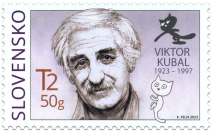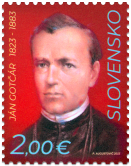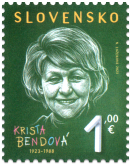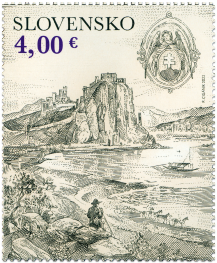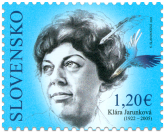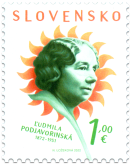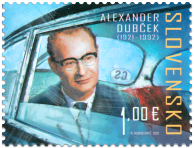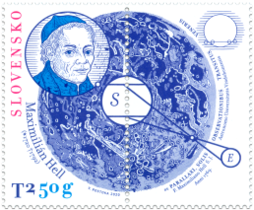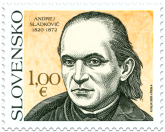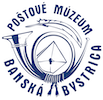835 Date of issue
25.11.2024 Face value
2.50 € Sell price
2.50 €
The Slovak writer, poet, prosaic and translator to and from Russian, Janko Jesenský, who in his civil life was also a solicitor and public officer, was born to a nationally oriented family of landowners. After successfully completing the Evangelical lyceum in Kežmarok, he attended the Academy of Law in Prešov. His doctoral studies were completed at the university in Cluj. As a trainee solicitor, he worked for several solicitors with nationalist interests. In 1906, he opened his own office in Bánovce nad Bebravou. During his studies he lived as a bohemian; he even defended his honour by duelling with sabres. He married Anna Bottová, a daughter of the Slovak solicitor and historian Július Botto, in 1909.
As a supporter of Pan-Slavism, Jesenský had to enlist in the army as early as 1914. In 1915, he was sent to the Russian front, where he allowed himself to be captured by the Russians. Once he had become a member of the Czechoslovak Legions, he was allowed to spend the rest of the war working as a journalist – he contributed and edited the legions press. Following his return home, he worked as a public officer; he was a district chief in Rimavská Sobota and then Nitra. Reform of the organisation of the state administrative bodies moved him into a position at the Provincial Authority in Bratislava. To begin with, he worked as an administrator and then until 1935, he held a position as one of the two Vice-Presidents of the authority. He chaired the Slovak Writer’s Association from 1930 to 1939.
His short prose, inspired by the ambience of a small town, along with his autobiographical love poetry, which belong to poetic modernism, received great acclaim. His two-volume novel, Democrats, has also become part of the literary canon. It is a satirical depiction of the contemporary social and political situation. During World War II he almost did not write at all. He was a confirmed supporter of a Czechoslovak state and his ideas were in opposition to the ruling fascist regime. The political and satirical poetry written during this period was only published after the end of the war. In 1945, he was the first Slovak to be awarded the title of national artist.
PhDr. Daniel Hupko, PhD
Show less© 2025 POFIS - Postal philatelic service. All rights reserved







